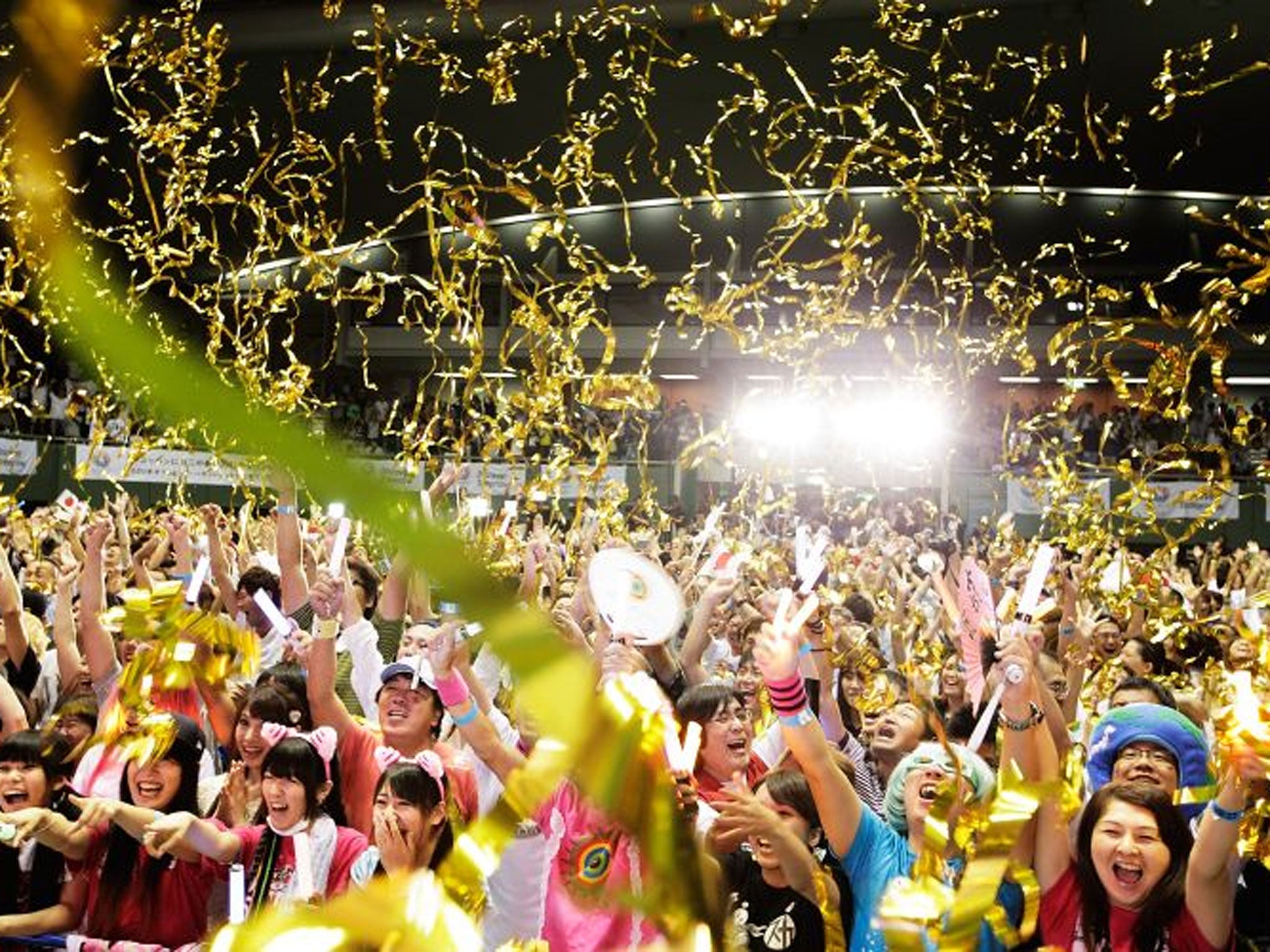'The safe Games': Judges convinced over Fukishima fallout fears as Tokyo wins the race to host 2020 Olympics
'The situation is under control,' says PM as Japanese bid defeats rival applications from Istanbul and Madrid

Your support helps us to tell the story
From reproductive rights to climate change to Big Tech, The Independent is on the ground when the story is developing. Whether it's investigating the financials of Elon Musk's pro-Trump PAC or producing our latest documentary, 'The A Word', which shines a light on the American women fighting for reproductive rights, we know how important it is to parse out the facts from the messaging.
At such a critical moment in US history, we need reporters on the ground. Your donation allows us to keep sending journalists to speak to both sides of the story.
The Independent is trusted by Americans across the entire political spectrum. And unlike many other quality news outlets, we choose not to lock Americans out of our reporting and analysis with paywalls. We believe quality journalism should be available to everyone, paid for by those who can afford it.
Your support makes all the difference.Tokyo will host the 2020 Olympic Games after its bid defeated rivals from Istanbul and Madrid. Thousands of people lined Tokyo’s streets at 5am in the morning after the result, was announced by International Olympic Committee President Jacques Rogge in Buenos Aires. The Japanese bid, branded the ‘safe games’, defeated rival applications from Istanbul in Turkey and Spain’s Madrid.
Tokyo, which missed out to Rio last time around, already has a national Olympic stadium and £650 million will be spent on transforming the site into a modern, 80,000-seat venue. Safety was the key tenet of the Japanese bid, with a mantra that Tokyo would be a “safe pair of hands in uncertain times” with a large emphasis on proven transport infrastructure and financial security. Masato Mizuno, chief executive of the Tokyo 2020 bid, said: ‘We are a reliable and safe pair of hands that the Olympic Movement can count on.”
The Japanese campaign also received support from Prime Minister Shinzo Abe, who left the G20 summit in order to make a bid directly to the Olympic Committee. It will be the first time the summer games will head to Japan since 1964. Japan was first awarded the Olympic Games in 1940 but they were cancelled due to the outbreak of the Second World War. The country also hosted the winter games in 1972 and 1998.
Tokyo bid organisers have suggested that public support for the Games is as high as 92 per cent. That said, some felt the lasting Fukishima fallout might have been a stumbling block for voting members following reports that 300 tonnes of radioactive water is leaking into the Pacific Ocean every day. The International Atomic Energy Agency (IAEA) recently reclassified the event from 1 to 3 on a seven-point scale. It has now been classed as a ‘serious incident’ and the government is set to spend £320 million on trying to contain the leaks.
Prime Minister Abe said: “Some may have concerns about Fukushima. Let me assure you the situation is under control. It has never done and will never do any damage to Tokyo. It poses no problem whatsoever. There are no health related problems until now, nor will there be in the future. I make the statement to you in the most emphatic and unequivocal way.”
Crucially, officials managed to convince judges that fears over the Fukishima Nuclear Plant disaster, which unfolded 150 miles away from Tokyo in 2011, could still cause contamination were unwarranted. The Governor of Tokyo, Naoki Inose, insisted: “The radiation level in Tokyo is no different to London, New York or Paris. It’s absolutely safe - 35 million people live there in very normal conditions.’
This was contrasted with Madrid, eliminated in the first round of voting last night, which promised a low cost spend in a time of economic crisis.
And while the celebrations began in Japan, there was absolute deflation in Istanbul, the runner up candidate city. This was the fifth bid from Turkey to have failed, pipped in a voting run-off. The Turkish bid was based on the idea of a city which already united Europe and Asia geographically that could unite the world through the Olympics not least by becoming the first predominately Muslim country to host the event. It is feared recent protests in the city and a fierce response to them by the authorities may have undermined the bid, however.
Join our commenting forum
Join thought-provoking conversations, follow other Independent readers and see their replies
Comments